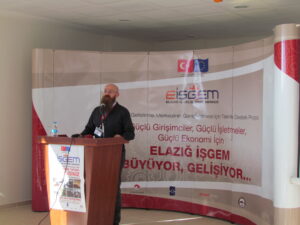
Technical Assistance for Implementation of Civil Society Dialogue and Civil Society Support Programmes (TR2015/DG/01/A5-01/001)
The overall aim of the project is to increase bilateral exchanges and cooperation between CSOs in Turkey and the EU at local, regional and national levels, to promote awareness raising initiatives on importance and benefits of membership of Turkey to the EU within Turkey and EU and on

Strengthening the Internal Market
Project is comprised of six components, as follows: Component 1: Improving the strategic, legislative and institutional framework in area of Free Movement of Goods Component 2: Improving the strategic, legislative and institutional framework in area of Free Movement of Services. Component 3: Improving the legislative alignment with the

Support for Policy Reform Accession and Effectiveness (SUPRAE)
In March 2020, North Macedonia began accession negotiations with the EU. However, the country still needs to meet EU standards, enact essential reforms, and institutional capacities to comply with the acquis and clusters. The project’s goal is to assist North Macedonia in its EU accession by increasing strategic

Civil Society Facility 2018 – Sivil Düşün IV
This project is the fourth phase of the Sivil Düşün (‘Think Civil’ in English) programme, which is being funded under the Civil Society Facility of Turkey. The ‘Sivil Düşün’ programme is designed to strengthen the structures and values of participatory democracy. It supports activities that strive to contribute

Technical Assistance for Expansion of Elazığ Enterprise Development Centre (İŞGEM)
Research showed that additional workspaces were needed at the Elazig Enterprise Centre and that improving the technical capacity of the centre would contribute towards the delivery of better services to entrepreneurs. WEglobal was contracted to work with local stakeholders in Elazig province to develop the existing centre to

Strengthening of an Integrated Strategic Approach to Increase the Efficiency and Productivity of IPA Funds during the Third Period (2021-2027)
This project’s main objective is to further increase and consolidate administrative capacity of the Turkish administration for more effective and efficient management and absorption of IPA funds, in addition to strengthen the capacity of NIPAC and other relevant institutions in the area of strategic planning and programming, proper

